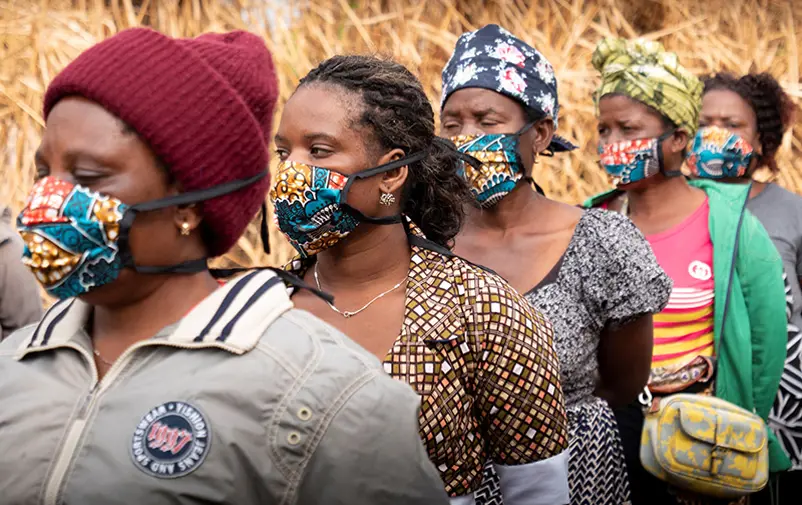FBA supporting the peace process in Mozambique
Since the beginning of 2022, FBA has been working to support efforts to consolidate definitive peace in Mozambique. In collaboration with the Peace Process Secretariat, a training was conducted in May 2022 for peace process stakeholders. The overall aim of the training was to contribute to the effective implementation of the Maputo Accord for Peace and National Reconciliation, and specifically, build-capacity surrounding gender inclusive approaches to the long-term work of reintegration and reconciliation.In 2019, the Maputo Accord for Peace and National Reconciliation (Maputo Accord) was signed by the parties, namely, the President of the Republic of Mozambique, Filipe Jacinto Nyusi, and the Leader of Renamo, Ossufo Momade, with hopes of bringing definite end to the low-level conflict ongoing since late 2012. The Peace Process Secretariat (PPS) works with the parties to ensure that the Maputo Accord and associated agreements are effectively and comprehensively implemented.
Led by Mirko Manzoni, the United Nations Personal Envoy of the Secretary-General for Mozambique, PPS is currently supporting the ongoing disarmament, demobilisation and reintegration (DDR) process of former RENAMO combatants and supporting the development of a national framework for reconciliation.
The DDR process aims to ensure that DDR beneficiaries (former combatants) can transition from being part of an armed group to civilian life in a sustainable way.
– Significant progress has been made in the peace process, and focus is shifting to the long-term processes of reintegration and reconciliation. At PPS, we welcome FBA’s engagement, both in terms of policy support to PPS and capacity-building support to representatives of the parties, says Neha Sanghrajka, Senior Political Advisor and one of the mediators of the peace process.
In May 2022, FBA and PPS co-facilitated a training in the city of Chimoio, in the central province of Manica. The training was designed to strengthen capacity in gender-responsive reintegration and approaches to building social cohesion through reconciliation for key stakeholders belonging to the implementation structures, representing both parties and responsible for each step of the DDR process.
– Beyond just offering a training, we saw this as an important opportunity to provide a space for dialogue and experience-sharing between the district and provincial representatives of the two parties. Local capacities and ownership are in fact key to the full implementation of the peace agreement. After all, these participants are doing the work ‘on the ground’, says Klara Grenhagen, Senior Peace Mediation Officer at FBA.
DDR activities will continue throughout the year allowing DDR beneficiaries to return home and start their transition to civilian life. While similar capacity-building initiatives are planned for other provinces, FBA is also providing technical advice and policy support to PPS on reintegration and reconciliation, including strengthening the integration of a gender perspective.
– An individual’s possibility to manage a sustainable exit from an armed group will depend, in part, on a society’s capacity to transform relationships after violent conflict, and to that end, the issues of reintegration and reconciliation are closely linked. Moreover, norms and gender roles related to femininity and masculinity can play an important part in continued patterns of violence. The integration of a gender perspective is therefore both a human right and a prerequisite to contribute to resilient and peaceful societies, says Frida Gabrielsson Kjäll, Senior DDR Officer at FBA.
Sweden is a committed supporter of the peace process in Mozambique, and FBA’s engagement is carried out in close collaboration with the Swedish Embassy in Maputo, Sida and in partnership with PPS.
Read more about the Peace Process Secretariat and the Maputo Accord for Peace and National Reconciliation on the website of PPS.








 >
> >
>

